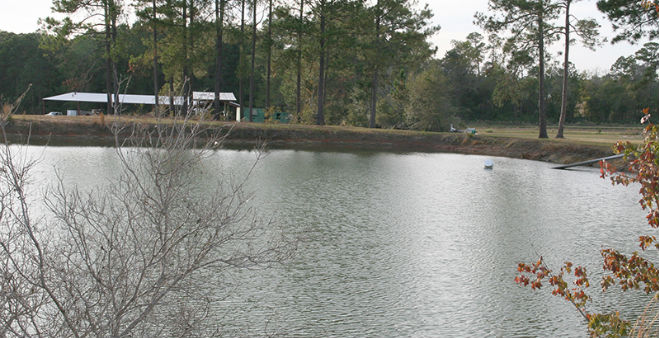Nov 13, 2016Georgia farmers face challenges from drought
Georgia farmers are experiencing one of the worst droughts in recent memory, and University of Georgia climatologist Pam Knox cautions that there could be a potential repeat next year.
“I’m thinking about April 1 of next year. If we haven’t been able to recover that soil moisture that we’ve lost, we could really see another bad drought in 2017,” Knox said.
Knox fears a La Nina weather pattern could impact south Georgia this winter. La Nina is associated with cooler temperatures in the Pacific Ocean, but would bring warmer temperatures and drier weather conditions to the Southeast. Farmers depend greatly on rainfall from December through February to replenish the soil and refill irrigation ponds.
“Farmers have been irrigating anywhere they can. Some of the streams in the northwestern part of the state are just puddles; there are not even flowing streams anymore. They’re not able to irrigate because you’re not allowed to draw water when the streamflow is that low,” Knox said. “Now, I think we’ll see some recovery from that over the winter. The question is, how much will we get?”
This year is unique in that the drought is impacting farmers statewide, not just in specific areas. Knox said that in 2007 and 2009, the drought was focused more on north Georgia, where residents expressed fears that they would run out of water. In 2011 and 2013, the drought was centered more around the central part of the state. This year, other than the coastal region that received rainfall from Hurricane Matthew, most of Georgia is experiencing drought-like conditions.
“This is already a dry time of year, but this is crazy that we’ve basically had no rain in the last month,” Knox said. “There was a good portion of the state that got no rain in October. That, coupled with the high temperatures, really makes the drought worse.”
Much of south Georgia, which is driven by production of row crops like cotton and peanuts, hasn’t experienced rainfall since Hurricane Hermine moved through the area over Labor Day.
“A lot of these areas, especially west of I-75, hadn’t had a single drop in two months. We’re definitely not doing well there at all,” said UGA Cooperative Extension peanut agronomist Scott Monfort.
For the northern part of the state, the drought has already made life difficult for cattle farmers. Knox said that north Georgia farmers started experiencing a lack of rain around the same time as the start of pollination of corn. Some farmers lost their entire corn crop due to a lack of moisture. Some farmers resorted to culling some of their cattle while importing hay from outside the state.
“My farmers are selling cattle. They’re running out of water. They’re selling their cattle because they may water their cattle out of the creeks and the creeks have dried up. They have no other source,” said UGA Extension Agriculture and Natural Resources agent Paula Burke in Carroll County. “They’re buying hay from other states. At first, we were encouraging them to look elsewhere in our state, but those supplies are limited.”
Adding to the challenging weather conditions are the abnormally high temperatures felt during October and to date in November. Knox reported that in some areas in Georgia, temperatures were more than six degrees above normal.
“The temperatures have been way above normal, which puts even more stress on the plants than there would be if the temperatures were a little closer to normal conditions,” Knox said.
While rain remains on everyone’s wish list, Knox cautions against wishing for all that rain to come at once. Instead of soaking through the soil, the rain would result in runoff.
“It might fill the ponds, but it won’t do anything for the soil moisture. What we need is to get lesser amounts of rain consistently over a long time period, so it could really sink into the soil,” Knox said.
— Clint Thompson, University of Georgia
Source: Georgia FACES















